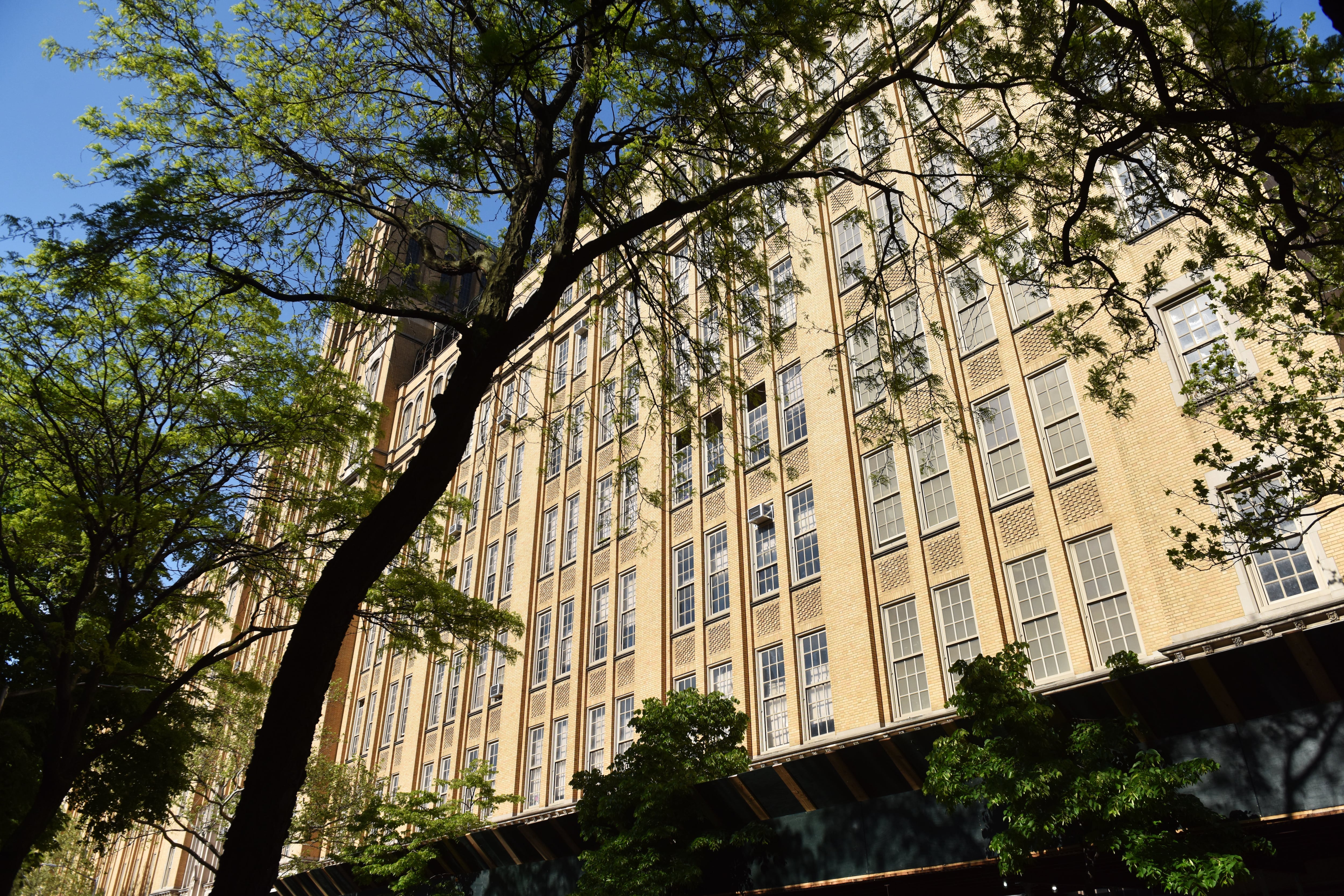State lawmakers are trying a new approach to help enroll more Black and Latino students at New York City’s elite but segregated specialized high schools. A group of Assembly members filed a bill this week to repeal the state law governing admission to the schools, which would then give the city control.
The proposed law would phase out the current admissions process by 2022, partly to give the city time to come up with a new admissions plan.
“We’re not calling for any policies. We’re just saying the state should stay out of it,” said Assembly Member Charles Barron, a co-sponsor of the legislation introduced Wednesday.
Admission to the schools is currently enshrined in a 1971 state law commonly referred to as Hecht-Calandra, which requires that enrollment is based exclusively on the results of an exam. The law took away the city’s power to change admissions standards at the schools, just as the chancellor at the time announced an investigation into whether the test was discriminatory against Black and Latino students.
Critics say that relying on the Specialized High School Admissions Test as the sole measure has led to student bodies that look dramatically different from the public school system as a whole.
For instance, at Stuyvesant, the most competitive school, only 10 offers went to black students — out of 766 total offers for this fall’s freshman class. At Staten Island Technical, only one black student was offered admission.
After fighting for years to change the admissions process, elected officials hope to ride a wave of civil rights protests across the nation, spurred by the killing of George Floyd, a Black man who died under the knee of a white police officer in Minneapolis.
“There couldn’t be a better time for this, fighting against all forms of institutional racism,” Barron said. “[City leaders] should at least have the authority to determine whether this high school testing policy is fair or racist.”
The latest state legislation comes on the heels of an unsuccessful, years-long fight to amend the admissions process. A bill introduced last year, which Barron sponsored, proposed a new admissions method that was modeled on a plan championed by Mayor Bill de Blasio. The debate over it became toxic as de Blasio’s proposal was fiercely criticized by some Asian parents who worried their children would be shut-out from the schools.
The previous bill never made it to the Senate, where Sen. John Liu was seen as an obstacle to getting legislation through the New York City education committee, which he chairs.
Liu represents a Queens district with a deep Asian constituency and called the mayor’s plan “racist” because he claimed de Blasio had excluded Asian communities in developing it. De Blasio has acknowledged that his rollout of the plan was flawed and scrambled last year to hear from Asian-American-led organizations before the bill died. On Thursday, a spokesperson for Liu said in an email that the senator does not support the effort to repeal Hecht-Calandra but declined to elaborate.
“There was a lot of concern about the prior bill because of the way it had been rolled out and many people felt overlooked,” acknowledged Assembly Member Jo Anne Simon, who co-sponsored both the previous bill and the current legislation. “People might be more receptive to the bill for a straight repeal. I think that the messaging got clouded with the last iteration.”
The timeline for the latest legislation takes the process of coming up with new enrollment standards out of de Blasio’s hands. Pushing the changes until after his tenure means that the specialized schools will likely become an election issue. Some mayoral hopefuls have already offered their own proposals to transform who gets into the schools.
The proposed law would also eliminate language that allows the schools to run the Discovery program, which is designed to increase economic and racial diversity in the schools but has largely fallen short of that goal. It would be up to the city whether to continue the program, which currently requires students who scored below the entrance exam cutoff to complete summer courses in order to be admitted. Such a program could be rendered obsolete if city leaders implement new enrollment methods that lead to a more equitable representation of students.
So far, the assembly proposal has the backing of Barron, Simon, Walter Mosley, Michael Blake, Harvey Epstein, and Tremaine Wright.
With the coronavirus pandemic still gripping the state, it’s unclear when the bill will start to move through the approval process.
The student-led advocacy group Teens Take Charge is already planning a lobbing effort to support repeal, and has launched an online petition that has gathered more than 6,500 signatures.
“I think now’s the time, if any,” said Cameron Leo, a member of Teens Take Charge and a graduate of Bronx Science, one of the specialized schools. “There’s a lot of political momentum around dismantling racist laws.”
Reema Amin contributed reporting.





